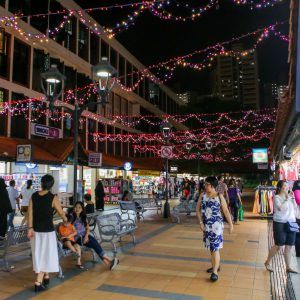Poverty Attitudes of Singaporeans: A Question of Class, Politics and Action?
August 18, 2020

World Humanitarian Day, every 19th of August, is dedicated towards recognizing the worldwide humanitarian efforts that support people in crisis.
While Singapore remains one of the wealthiest nations in the world today, poverty and homelessness have emerged as symptomatic of the nation-state’s widening income inequality. Associate Professor Irene Ng’s (NUS Department of Social Work) article, “Poverty Attitudes of Singaporeans: A Question of Class, Politics and Action?” (Social Indicators of Research, 2015) examines the dominant attitude towards poverty adopted in Singapore. She firstly sets out to provide a status report of poverty attitudes in Singapore, and secondly offers an analysis of the demographic and contextual factors driving these attitudes.
The article identifies three popular classifications of poverty: individualistic, societal/structural, and fatalistic/situational. A/P Ng’s study found her sample 440 respondents to be more liberal in terms of their attribution of poverty, with most believing that circumstances are a bigger cause of poverty than individualistic causes like lack of willpower or laziness. A/P Ng also notes that this is consistent with the respondents’ more narrow definition of poverty, such as not having enough to buy things one needs, or becoming in debt in order to eat and live. Nevertheless, such views imply that if poverty is seen as what strikes only the most down and out, then respondents largely feel that poor people really do need help. A/P Ng’s article also took into consideration the respondents’ different affiliations (i.e. with income class, political affiliation, being a social or healthcare professional etc.) alongside demographic backgrounds.
On the whole, the study found Singaporeans’ sentiments towards poverty largely sympathetic. A/P Ng also emphasized the need for public education to help all strata of society better understand the structural factors around the nature of poverty in Singapore society today. At the same time, however, she acknowledges that helping poor people recognise that there are more external forces working against their individual efforts might easily dash hopes of upward social mobility in a society built upon meritocracy. As such, she concludes by urging continued societal commitment to addressing the environmental impediments to uplifting the poor, and the timeliness of more redistributive policies now.
Read the article here.
